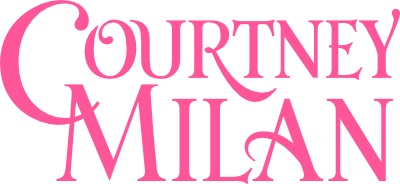The announcement that David Boies had entered the fray that is the DOJ versus agency publishing was greeted by a wave of adulation.
Mike Shatzkin tweeted that his letter “obliterated the gov’ts case.” A slew of commentators rushed to add that if a lawyer as good as Boies was weighing in against the DOJ, it must be that the case was unfounded.
Those people, I think, do not understand how it is that really excellent lawyers make their money. They don’t do it by taking hopeless cases and winning them. That’s the Hollywood version of the law. They don’t do it, either, by waiting for cases that anyone could win and then grabbing them.
No; when loss is inevitable, you hire an excellent lawyer in a hopeless case not because you think that lawyer will help you win against all odds, but to manage the magnitude of that loss.
That is what Barnes and Noble has done by hiring David Boies–they’re not shooting for a win; they’re shooting to manage the loss.
Let me explain.
David Boies wrote that letter knowing that the government and the defendants were going to settle. The stakes are too high for the agency publishers. We are talking about allegations of a criminal act that are supported by phone calls, notes, indiscreet comments made to people. The punishment for that is potentially treble damages–think about the cost of that. The agency publishers who are thinking rationally rather than emotionally know that they are goners. As cases go, this one is a massive stinker.
That is why David Boies’s letter says nothing about the conduct at issue here: the claimed conspiracy between the agency publishers. He has nothing to say on that front; if the allegations made in this and the suit by the attorney generals have any basis in reality, this one is lost on its face.
So take another look. David Boies’s letter to the DOJ is not designed to win that lawsuit or prevent settlement. Settlement is inevitable. The letter is designed to make the settlement process take longer.
So he argues that the proposed settlement is overbroad–in other words, go back and rewrite it! He then argues that the settlement process is not based on a sufficient factual record–in other words, go back and dig for more facts and present them to the court! What he never says is that settlement (in the abstract) is inappropriate or that there was no illegal conduct.
Delay is the only marginal win that Barnes and Noble can hope for. If the settlement is delayed, and agency comes to an end, Barnes and Noble suddenly–painfully–has to compete on price. Boies said so himself:
Distributors, such as Barnes & Noble, at the expense of publishers, enjoy somewhat greater profit margins, as they earn 30 percent commissions on the sales of e-books, as opposed to the negative profit margins they experienced under the wholesale model.
How much do you think it’s worth to B&N to not have to compete on price for another year or two? To be able to grab more market share from Amazon by competing in other ways that are less costly? The last years of Agency were a boon for Barnes and Noble. The more years they can get, the more money they’ll make. Five figures for a lawyer who manages to extend the life of agency for another handful of months would be cheap at the price.
Publishing professionals who are embracing Boies’s letter as an industry savior need to take another hard look. Nothing that Boies said in that letter was designed to do anything other than buy B&N time to consolidate and expand market share without competing on price. In other words, it wasn’t designed to help the publishers win the lawsuit–Boies’s utter silence on the salient legal issue in the suit makes that perfectly clear.
That letter was designed to make the loss less painful for Barnes and Noble. It’s exactly what you’d expect from an excellent lawyer who was trying to do his best for a client in an impossible situation: An attempt to gum up the settlement for as long as possible. If he’s really lucky, Boies will get a settlement that doesn’t bar agency pricing. But that, I suspect, is a luxury on his list. (And, note: it’s a luxury on the list of the publishers.) The meat and potatoes of this letter is that Barnes and Noble would be happy to push settlement off for as long as they can.
And that is why Boies is a great lawyer. He knows that he can’t win the lawsuit, and so he goes for what he can win–which is, for now, another six months.
That’s how you manage a loss. It’s not how you orchestrate a win.

Thank you.
Based on your knowledge of this area of law, do you think that the judge reviewing the settlement will actually see it for the puffery that it is or will he/she delay the approval of the settlement to find out more “facts”? From what I have read so far, I can’t think that the disclosure of further evidence is going to help the situation for those publishers who want to settle even if it does help B & N who has reaped the benefit from their illegal collusion. Is Boies argument going to get sympathy from the bench?
Mike Shatzkin has already publicly stated he doesn’t think publishers should be competing on price. That was a true WTF moment for me. If that’s the view industry insiders are taking and defending, they’re doomed. That’s not a strategy for long-term success on any level.
I’m not convinced that even if the settlement is delayed that the judge wouldn’t consider a temporary injunction. The ruling on the motion to dismiss appeared to be worded strong.
Business is business no matter what the situation.